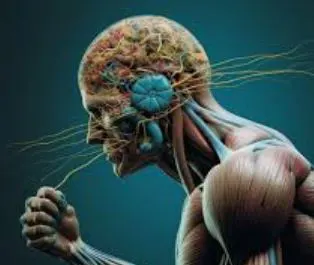Exercise plays a role in brain health by triggering molecules involved in cognitive function to be released by muscles, a recent study has shown.
The study, published in Proceedings of the National Academy of Sciences, shows that when nerves that stimulate muscles are activated, they also send signals to the brain by secreting bioactive molecules and nanoparticles that enhance brain function.
The findings illustrate the importance of maintaining musculoskeletal health, not just for cardiovascular health or mobility, but also to counteract neurological degeneration, Hyunjoon Kong, PhD, Robert W Schafer Professor in the Department of Chemical and Biomolecular Engineering at the University of Illinois Urbana-Champaign, corresponding author of this study, told Medical News Today.
“Maintaining neuronal innervation is crucial for muscles to produce biological factors beneficial to the brain. With regular muscle contractions, muscles not only secrete these beneficial factors but also help sustain the innervation necessary for nerves to continue signaling muscles. This signaling is essential for regulating the release of neurotrophic factors into the brain.”
The study involved stimulating muscles with glutamate to see how nerve function would respond. Researchers used models of muscle tissue, one that was innervated and one that was not, and discovered that the innervated tissue sent more signals to the brain.
Since some of the neuron function in muscles can decrease with age or injury, researchers were interested in discovering how this loss would affect brain health.
How does exercise affect brain function?
In this study, the researchers did not observe people exercising. Rather, they looked at muscle models, meaning that it was not possible to draw immediate conclusions about particular forms of exercise and how they may vary in the way they interact with brain health.
Kong said that previous studies on exercise and brain health have found direct correlations between the size of the hippocampus and regular physical activity. But for this new study, the researchers examined the nervous system and musculoskeletal functions to achieve further understanding of brain-body interactions.









